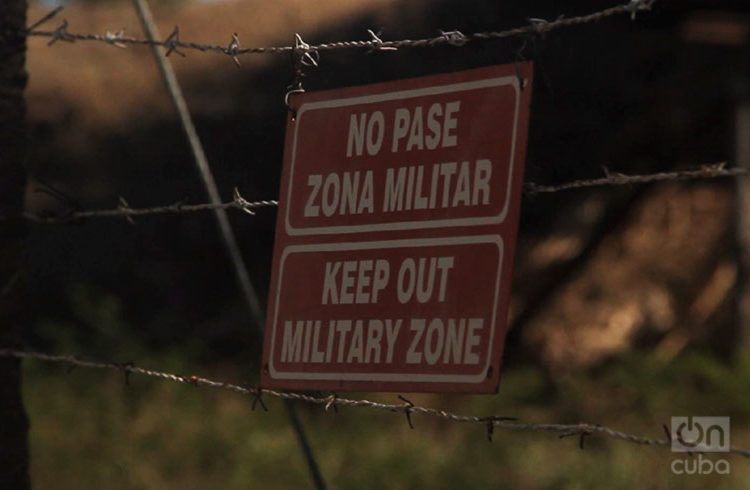“Is it legally defensible to hold on to the territory in perpetuity? Have we become squatters in paradise?” are some of the bigger questions “that American politicians have opted to ignore,” says The New York Times about the Guantanamo Naval Base.
In a long article, Ernesto Londoño collected the opinions of experts on what the United States should do with the territory it still occupies in Cuba.
With Trump’s June 16 announcement in Miami the president is once again recasting the relationship between the two neighbors as one of subjugation, said Londoño.
For the journalist, “few issues exemplify this toxic dynamic as starkly as the convoluted history of how the United States came to open a naval base in this part of Cuba.”
The story told by Londoño dates back to more than 100 years ago, with the U.S. military occupation of the island. Guantanamo is the oldest U.S. naval base abroad and remains despite Cuba’s constant demand that it be returned.
The installation gained greater notoriety when the Bush administration turned it into a prison in 2002 to detain those suspected of being terrorists in a territory that was beyond the reach of constitutional protections. It became a place of humiliations and tortures.
“What to do about the remaining Guantánamo prisoners remains a vexing, unresolved question,” says Londoño.
In his article he develops issues like the place’s legal status under international law and the need for its existence.
“Is the continued American presence at Guantánamo sound under international law? The short answer is no.” Although for senior U.S. military officials “it serves as a transit point for Cuban refugees who are intercepted at sea…. It has also served as a logistics hub to respond to natural disasters,” he says.
After Sept. 11, 2001, the base became a highly costly center. The staff exponentially multiplied and with this the expenses for its maintenance.
https://www.youtube.com/watch?v=EDwT7fiBCgc
“Guantánamo is larger than the naval base in Bahrain, home to the U.S. Fifth Fleet, and the naval base in Rota, Spain, which are among the Pentagon’s most strategically valuable overseas hubs,” he explains.
But the payment for its rent doesn’t turn it dispensable. Since 1959, the United States delivers a $4,085 check each year in April. The Cuban government last cashed it in 1959. For Londoño, “while rent is certainly a bargain, running a base on territory deemed by the host to be illegally occupied is costly.”
Just the detention task force costs roughly $80 million per year. Separately, Congress appropriated $181 million for the current fiscal year for base operations.
“If one assumes the prison continues to be the primary reason to keep the base open, its current budget works out to $6.3 million per detainee (the average yearly cost of a federal detainee in 2015 was just under $32,000),” he explains.
One of the specialists cited by Londoño, David Kohner, the chairman of the Maritime History Center at the United States Naval War College, emphasized the need to move on from the terms of a lease signed in 1903.
But Cuba demands that the Base be closed because of a basic question of national sovereignty. And there are means for the devolution.
“The American presence in Guantánamo has long been a thorn in the Cuban psyche, a reminder of an era of American domination that is taught early and often in Cuban schools,” says Londoño.
Cuban academician Carlos Alzugaray told him, for example, about the possibility of Havana seeking an opinion from the International Court of Justice on the legality of the American presence in Guantánamo or submit a detailed diplomatic note demanding the return of the territory.
“It could be presented constructively,” he said to the journalist. “It would be sensible if they asked us for 10 years to leave.”
For the former diplomat, the prospect of negotiating a permanent American presence in Guantánamo is dim but not impossible: “It would require finding a solution in which Cuban sovereignty is respected. Here, it is something everyone feels hurt by.”
Meanwhile, Guantanamo devours money and gives the authorities problems.










